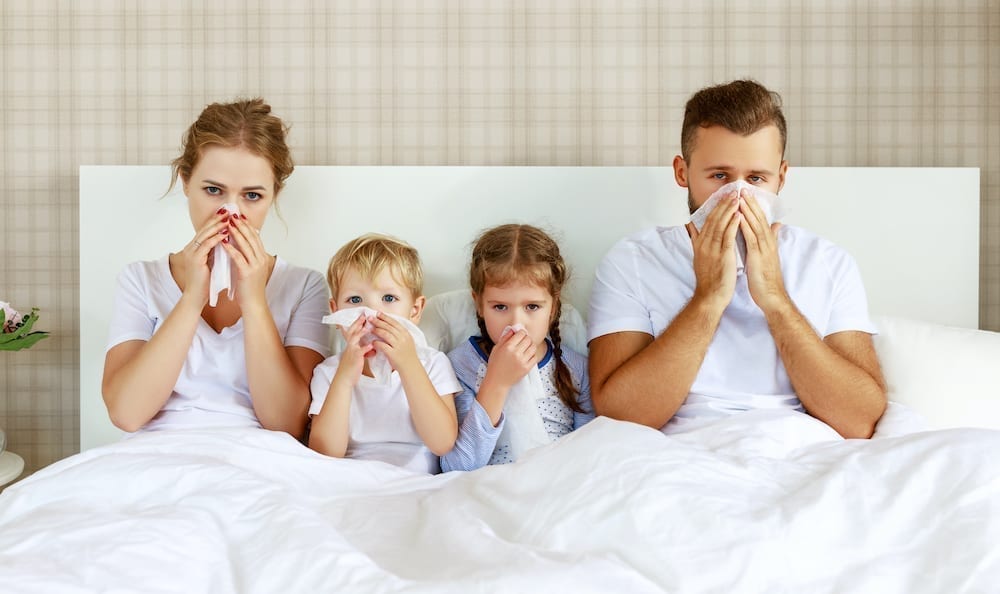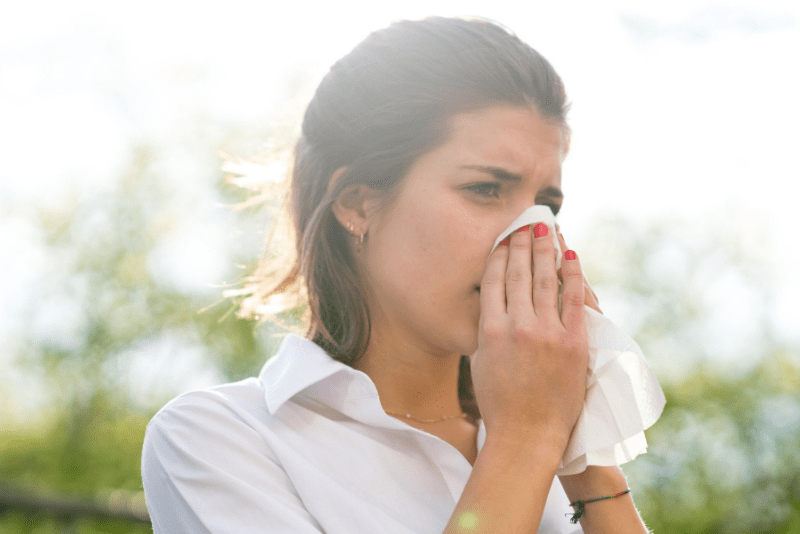Winter allergy symptoms are the same symptoms that patients experience during other parts of the year. People often experience nasal congestion or stuffy nose, runny nose, itchy nose, sinus pressure, sneezing, postnasal drainage down the back of their throats, and itchy or watery eyes. Although there are not many grasses, trees, or weeds pollinating during the winter, there are plenty of other airborne allergens that can cause symptoms during the winter months. These primarily include indoor allergens that are present throughout the year, such as pet dander, dust mites, cockroach, and mouse. No matter how clean we all keep our homes and workspaces, environmental allergens are still present and can result in allergy symptoms.
During the winter months people are also staying indoors more, which increases their exposure to these allergens. The holiday season can increase patients’ exposure to these allergens as people tend to travel more, resulting in time spent in hotels and family members’ homes. This can also result in exposure to different pets that people are not used to being around, which can cause patients to become symptomatic.
Decorating for the holidays can also cause increased exposure to dust mites and molds. People are either going into their attics or basements to get out their decorations, which is where these allergens can be found. The decorations themselves can also have mold on them, especially if they were in plastic storage bins that trapped some moisture. Artificial trees can have mold growing in them from being stored away, and live Christmas trees naturally carry mold spores, which are then brought inside during the holiday season.
Winter is also a time of year when numerous respiratory viral illnesses are rampant and rapidly spreading. It is highly recommended that everyone receives their flu shot prior to the winter season to help protect themselves and their loved ones from influenza. This along with increased hand hygiene and avoiding sick contacts can help to protect patients from contracting the flu and other viral illnesses. Unfortunately, symptoms of viral illnesses can be identical to the allergic symptoms described above. Sometimes it can be difficult to tell if your symptoms are due to allergies or a cold. One helpful tip is that viral symptoms typically last between 10-14 days, whereas allergic symptoms can be prolonged. Additionally, viruses can often cause fevers, decreased appetite, and muscle aches, which are generally not caused by allergies.
If there is any concern for allergic symptoms during the winter, it is recommended that patients be evaluated by a board-certified allergist. We can perform allergy testing and let patients know specifically what they are allergic to within minutes. For patients who have positive allergy testing and do not achieve enough relief with over the counter and/or prescription nasal sprays, oral antihistamines, and eye drops, allergy immunotherapy (allergy shots) are often recommended. So stop sniffling and sneezing your way through winter and find relief today!




